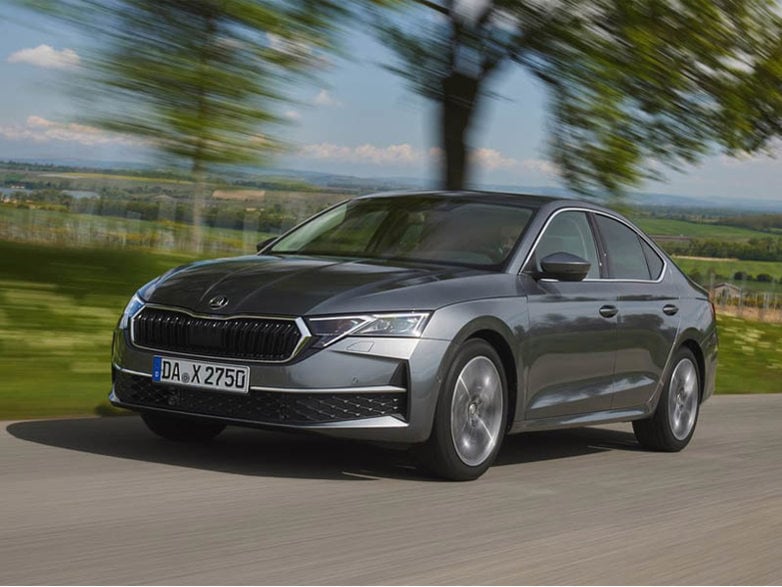Car Leasing for Pensioners: What you need to know
As we get older, our needs change, and so do our driving habits. You’ve likely packed in your daily commute, and now you’ve got more time to do the things you’ve always wanted, whether it’s planning that long-awaited road trip or spending more time with friends and family.
A key part of that independence is your vehicle. Having something reliable, comfortable, and modern makes a big difference in how much you enjoy retired life.
Leasing can be a helpful option for pensioners on fixed incomes who want to drive a newer car without the hassle of ownership, maintenance, or resale. It’s not for everyone, but for many, leasing offers simplicity, predictability, and peace of mind.
In this guide, we’ll break down everything you need to know about car leasing in retirement, from credit checks to choosing the right vehicle. We discuss:

One of the most common questions around car leasing is whether there’s an upper age limit. The good news is that there isn’t. As long as you hold a full UK driving licence and meet the financial criteria, your age won’t prevent you from leasing a vehicle.
Leasing agreements are credit-based, so approval is not determined by age but by your financial circumstances. Several factors are used to assess your eligibility, including:
- Personal data - such as marital status and the number of dependents.
- Credit history - a credit report helps finance companies determine a potential customer's eligibility.
- Income and expenditure - including pensions or investment income balanced against monthly outgoings.
- Employment history - while not always relevant for pensioners, some finance providers may still review your past employment.
Even if you’re fully retired, a stable pension income and a good credit history can meet the requirements for a lease agreement.
“As long as you meet the regulatory standards and you are still medically fit to be behind the wheel, there is no upper age limit for driving, or leasing, a car in the UK.”

Whether leasing is an option in retirement really depends on your individual financial circumstances. For some, it can offer a flexible and manageable way to access a new car without the long-term commitment of ownership. But for others, it may not be the most suitable choice.
The key factor is whether you can afford the monthly payments. This means having a steady income, such as from your pension, and enough surplus each month to meet your leasing costs without financial strain.
Like any credit agreement, it’s important not to overstretch yourself. So, if you’re unsure, take a moment to sit down with a calculator, review your monthly income and outgoings, and decide if leasing fits within your budget.
Tip: It’s a good idea to factor in fuel, insurance, and maintenance costs when working out affordability.
Although leasing has many advantages, there are a few factors you need to consider.
The most important thing is regarding your driving licence. After the age of 70, a person's driving licence has to be renewed every three years. If the DVLA deem you unfit to drive and don’t renew your licence, you’ll have to return the vehicle (and will probably have to pay early termination fees).
You’ll should also consider:
- You won’t own the car - it will be returned to the finance provider at the end of the lease
- Wear and tear rules apply - when you return the car, it must meet fair wear and tear guidelines
- Mileage limits are fixed - each lease included an annual mileage allowance agreed at the start. If you exceed it, you’ll pay a charge
- Your health - it’s worth thinking about how your health and mobility might change over the duration of the lease
Yes, pensioners interested in leasing can pass the credit check. To pass a credit check in the UK, you must be able to verify your identity, therefore, as long as you’ve got a full UK drivers licence, you’ll be off to a good start.
If your pension covers the monthly payments and your credit score is good to excellent, there should also be no issues.
Unless you’re still chasing the thrill of a racetrack, most pensioners are looking for a car that’s comfortable, easy to drive, and suits a more relaxed lifestyle. With family life behind you, retirement is a great time to choose a car that fits your needs and not someone else’s.
Look for features that prioritise comfort, accessibility, and peace of mind, such as:
- Easy entry and exit (think higher seat height and wide-opening doors)
- Automatic gearbox for ease of driving
- Good visibility and parking sensors and cameras
- Simple controls and infotainment system with a clear dashboard and easy-to-use tech
Here’s our top recommendations:
Best cars for pensioners

1. Honda Jazz
I don’t want to add to stereotypes here, but it’s hard to ignore the Honda Jazz when you’re a pensioner. It’s just a very good car. Spacious, efficient, reliable, and easy to drive. It just works.

2. BMW 3 Series Saloon
If you’re after something more refined, the 3 Series delivers comfort, excellent driving dynamics, and a premium feel inside. It’s great for those looking for a touch of luxury in retirement.

3. Skoda Octavia
It’s got space, comfort, and value for money. The Octavia has a large and accessible boot, a smooth ride quality, and a no-fuss interior layout.
It’s not something anyone likes to think about, but it’s important to understand what happens to a lease agreement if the person named on the contract passes away.
In this situation, the trustee of the estate should contact the finance provider as soon as possible.
For lease agreements like Personal Contract Hire, an early termination fee may be required to end the agreement and return the vehicle.
That said, finance providers often review each case individually. In some circumstances, they may reduce or even waive the early termination fee, depending on the terms of the agreement and situation.
We go into more detail on this in our guide, What happens in the event of death of the contract holder?
Tip: If you’re acting on behalf of someone’s estate, the first step is always to get in touch with the finance company directly.
Whether leasing or buying is the better choice in retirement comes down to personal preferences, finances, and how you plan to use the car.
Leasing can be a good option if you prefer lower upfront costs, like the idea of fixed monthly payments, and don’t want to worry about depreciation.
On the other hand, buying might suit you more if you plan to keep the car for many years, you’d rather own the car outright, and you don’t want contract restrictions.
Ultimately, there’s no one-size-fits-all answer. It depends on how much flexibility you want, how often you drive, and how involved in the upkeep of the car you want to be.
Ready to explore your options? Whether you’re downsizing, looking for something easier to drive, or just want a change, leasing could be a stress-free solution in retirement.
Guide Information
Originally published: 14th September 2016
Last updated: 3rd July 2025
Due to be reviewed: 2nd July 2026
